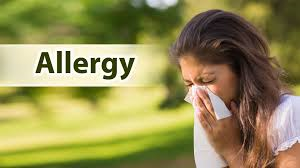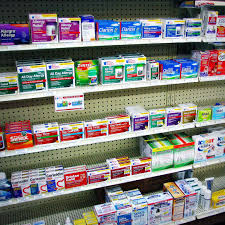 By Carlie Cass
By Carlie Cass
Springtime allergies, in particular hay fever, can make people feel terrible this time of year.
According to the Mayo Clinic, “Hay fever, also called allergic rhinitis, causes cold-like signs and symptoms, such as a runny nose, itchy eyes, congestion, sneezing and sinus pressure. But unlike a cold, hay fever isn’t caused by a virus. Hay fever is caused by an allergic response to outdoor or indoor allergens, such as pollen, dust mites or tiny flecks of skin and saliva shed by cats, dogs and other animals. Besides making you miserable, hay fever can affect your performance at work or school and generally interfere with your life.”
“My nose runs a lot,” CSN student Lauren Eliot said. “I went through half a pack of tissues in an hour’s time. My throat gets sore and my eyes are very itchy.”
“I usually know it’s the spring season when my allergies start kicking in,” CSN student Aaron Morton said. “Sometimes it’s really bad and I just deal with it and make sure to always have a tissue on hand.”
The wind in Las Vegas contributes to people’s enflamed allergies. Popular culprits include pollen from olive, ragweed and grasses.
“If it’s a windy day it’ll spread the pollen around and if I’m outside too long it will start to affect and annoy me,” CSN student Andrew Slackwai said.
According to Asthma and Allergy Foundation of America, a leading non-profit organization that helps patients, nasal allergies affect approximately 50 million people in the United States.
In 2012, there were approximately 11 million people who were diagnosed with allergic rhinitis and 17.6 million adults with hay fever, according to AAFA. Worldwide, allergic rhinitis affects upwards of 30 percent of the population.
In 2010, Americans with nasal swelling spent approximately $17.5 billion on health costs, according to AAFA. They have also lost more than six million work and school days and made 16 million visits to their doctors.
Preventative care can be taken by those who expect to suffer when the season approaches. “Prevention is key,” said Grace Shiao, a doctor of pharmacy. “If you know you have allergies take medicine inside and wait before going outside. Wear glasses to avoid pollen irritating the eyes and wash clothing to remove pollen.”
 Popular over-the-counter allergy medications can help: Allegra-D, Claritin-D, Zyrtec and Flonase.
Popular over-the-counter allergy medications can help: Allegra-D, Claritin-D, Zyrtec and Flonase.
Pseudoephedrine is a common ingredient found in allergy relief medication and is used to clear up nasal decongestion.
“When it is really bad I take Claritin-D,” CSN student Albert Hernandez said.
“When my allergies flare up I’ll take Zyrtec and I drink more water than usual,” CSN student Caeli Chesin said.
To check the weekly pollen count in Las Vegas click this link https://www.pollen.com/forecast/extended/pollen/89101.



